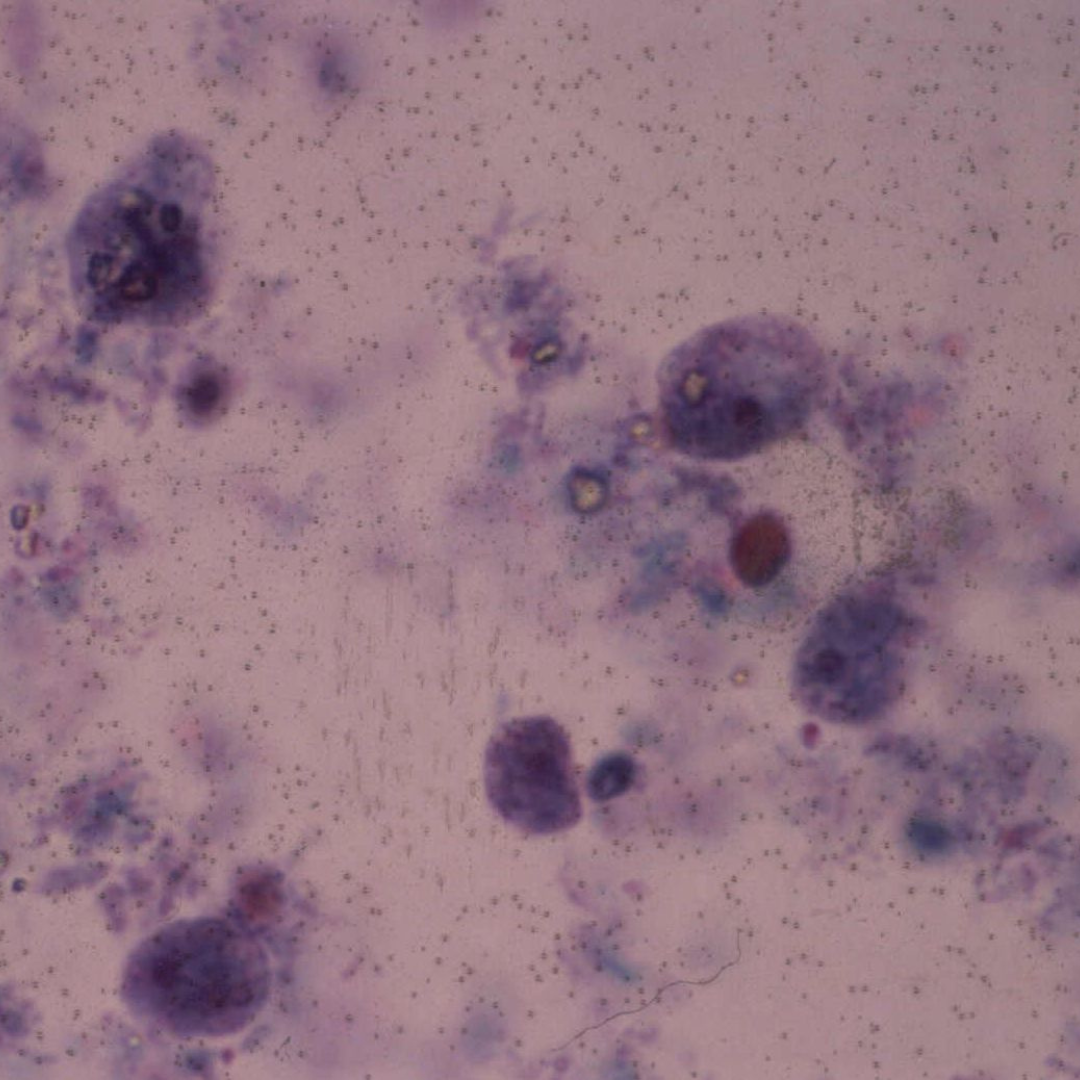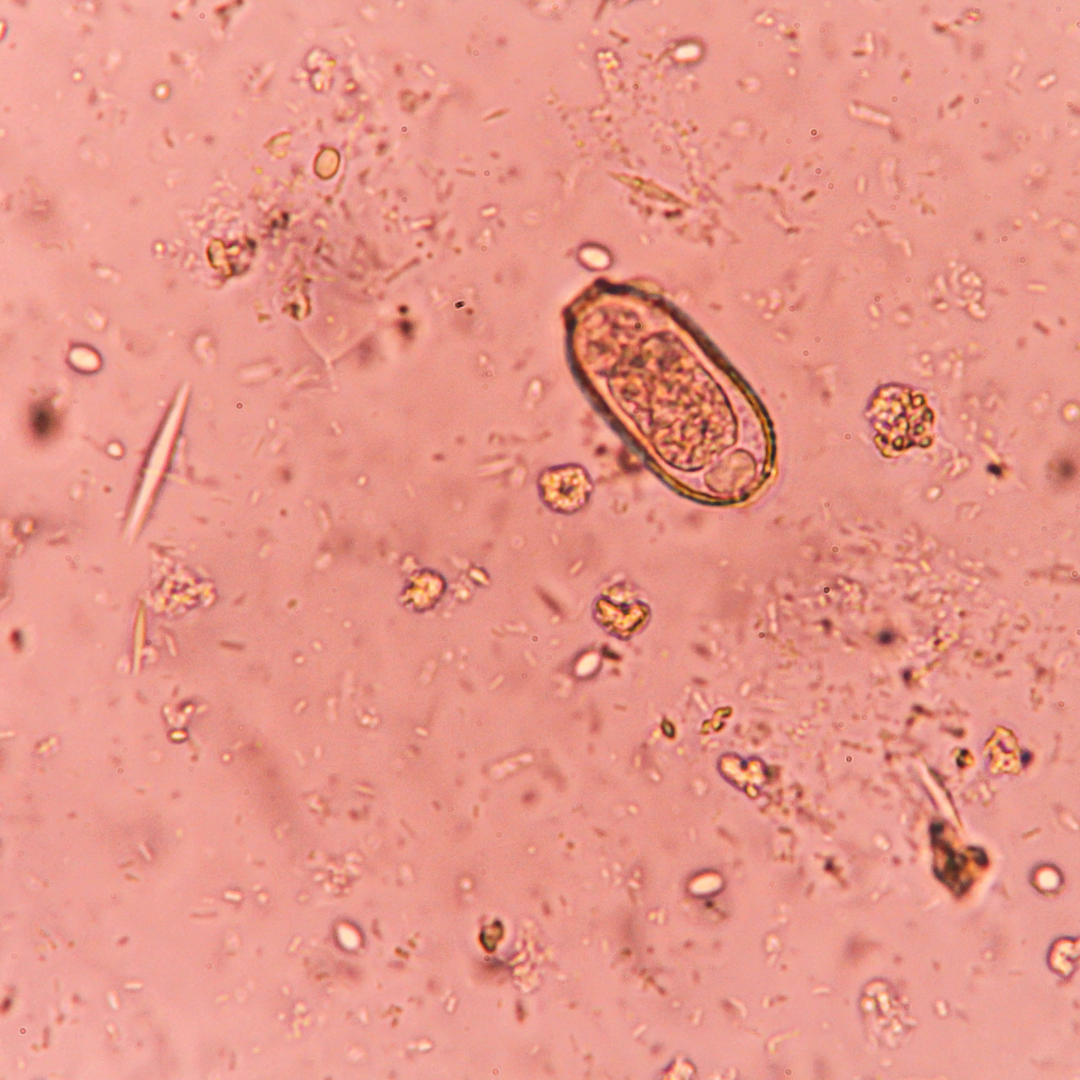Article: Dientamoeba Fragilis, Do I have it? Natural alternatives for Treatment.

Dientamoeba Fragilis, Do I have it? Natural alternatives for Treatment.
Having battled with eradicating Blastocystis Hominis, a protozoan parasite, it was only natural we looked also at Dientamoeba Fragilis - another very common Protozoan Parasite. Due to lack of studies and concrete knowledge around the parasite, the jury is still out on whether or not to actually treat it when it shows up on a stool test. Read on to find out why!
What is Dientamoeba Fragilis?
Dientamoeba Fragilis is a microscopic parasite that infects the human intestines. Despite its name suggesting it is an amoeba, D. Fragilis is actually classified as a flagellate, meaning it moves using whip-like structures called flagella. It is a globally distributed parasite, found in both developed and developing countries, and can infect individuals of any age. The exact mode of transmission remains unclear, but it is often associated with fecal-oral routes, suggesting that it may spread through contaminated food or water. However studies are really lacking here, so its certainly a grey area!
What do studies show on Dientamoeba Fragilis?
Estimates are putting Dientamoeba Fragilis infection as common throughout the world.
"Dientamoeba fragilis is reported with a prevalence ranging from 0 to 62%, depending on region, population and detection methods used. D. fragilis was identified in 0.5% of all stool samples examined in a large U.S. study, and the prevalence is as high as 20% to 50% in selected populations. It is increasingly recognised as a parasite with the potential to cause illness in humans"
Despite being identified over a century ago, research on Dientamoeba fragilis remains limited.
Studies are showing it could be a very different protozoan parasite in that it appears to be very mobile, only able to live inside a host and does not 'appear to' have a "cyst" stage of development like similar other parasites (3). If this be the case and it lacks this stage of development, it would mean that it cant actually survive a faecal-oral route of transmission, which would leave many baffled as to how it is contracted. Some studies have shown it can actually be transported via the egg of pinworms - a common parasite in children.
As a result of the above, clinicians and studies have mixed thoughts around whether to actually treat D.Fragilis as the studies are really lacking and its unknown if the symptoms people are presenting are actually even related to this parasite.
Some researchers and gut health clinicians think Dientamoeba Fragilis is a parasitic infection that needs to be treated in anyone that presents with it as it can lead to illness longterm. On the other hand, some think that it is a commensal microbe that is simply blamed for poor gut health because it is easy to find on a cheap stool test. Maybe it could be that certain strains of Dientamoeba fragilis are more pathogenic than others meaning some should undergo treatment while for others its unnecessary?
We suggest ruling out other possible gut disorders like small intestinal bacterial overgrowth (SIBO0 , large bowel dysbiosis and even things like coeliac disease before tackling this parasite.
What are the symptoms Dientamoeba Fragilis may cause?
Infection with Dientamoeba fragilis can lead to a variety of gastrointestinal symptoms, which can vary in severity. Common symptoms it may cause include:
- Diarrohea
- Abdominal pain
- Bloating
- Excessive gas
- Nausea
- Irritable Bowel Syndrome in adults (5).
- General fatigue (4).
There was a paper published in 1983 that relates a case of ulcerative colitis (inflamed and ulcerated colon) to a positive infection of Dientamoeba fragilis.Treatment of the parasite subsequently cleared up the illness (6).
Some individuals may be asymptomatic carriers, meaning they harbour the parasite without showing any symptoms.
Remedies for Dientamoeba Fragilis
While medical treatments, such as antibiotics, are available for Dientamoeba fragilis infections, some individuals choose to seek natural remedies. Approaches include:
-
Antibiotics: Most western Drs will prescribe antibiotics, including metronidazole (7), oxytetracycline, doxycycline, tinidazole, ornidazole and erythromycin (9). We encourage nurturing, rebuilding and caring for your gut health and microbiome post treatment should you take this route.
-
Diet: Follow a Parasite Cleanse diet protocol, such as that in Zeally Herbs e-book. Eliminate starches, sugars, processed foods, dairy, alcohol and red meat.
-
Supplement with ACV: We encourage using Apple Cider Vinegar (ACV) each morning on waking and before meals to help your digestion. Look out our ACV Free Guide for more information on the benefits and how to incorporate this into your Parasite Cleanse Protocol!
-
Repair the Gut Lining: Many clinicians suggest repairing the gut lining as part of the protocol. The encourage supplementing with the amino acid L-Glutamine, using Bone Broths, Healing Herbs such as Aloe Vera leaf juice, Licorice Root, Marshmallow Root and Slippery Elm Bark.
-
Eliminate the Parasite: Use powerful traditional and Anthelmintic herbs to eradicate the Parasite. Many call this a "weeding phase" where you work to kill the parasite. Traditional herbs used at this step include
Artemesia annua, aka Sweet Annie (14, 15), Black Walnut, Myrhh and Clove - All found in Zeally Herbs potent Parasite Cleanse and Colon Cleanse Capsules.
- Nurture the Gut Microbiome: After all steps are done we want to encourage nurturing our gut microbiome with lots of beautiful food sources of Prebiotics, probiotics and fermented foods. Zeally Herbs incredible Biotic Powder is ideal at this stage to incorporate into your day long term, rich in prebiotics to grow our microbiome flora (7)
So if you have taken a test and its shown positive for Dientamoeba Fragilis, we suggest working with a clinician to explore other reasons for your symtoms ie SIBO, Celiac Disease, Food Allergies. If you are then ready to use Natural Alternatives as treatment, we have outlined 6 steps above.
Zeally Herbs Parasite Cleanse is a holistic, gentle but traditionally potent formula which can be taken annually or bi-annually as part of a Parasite Prevention and Management protocol.
As always, reach out if we can help with anything! x

